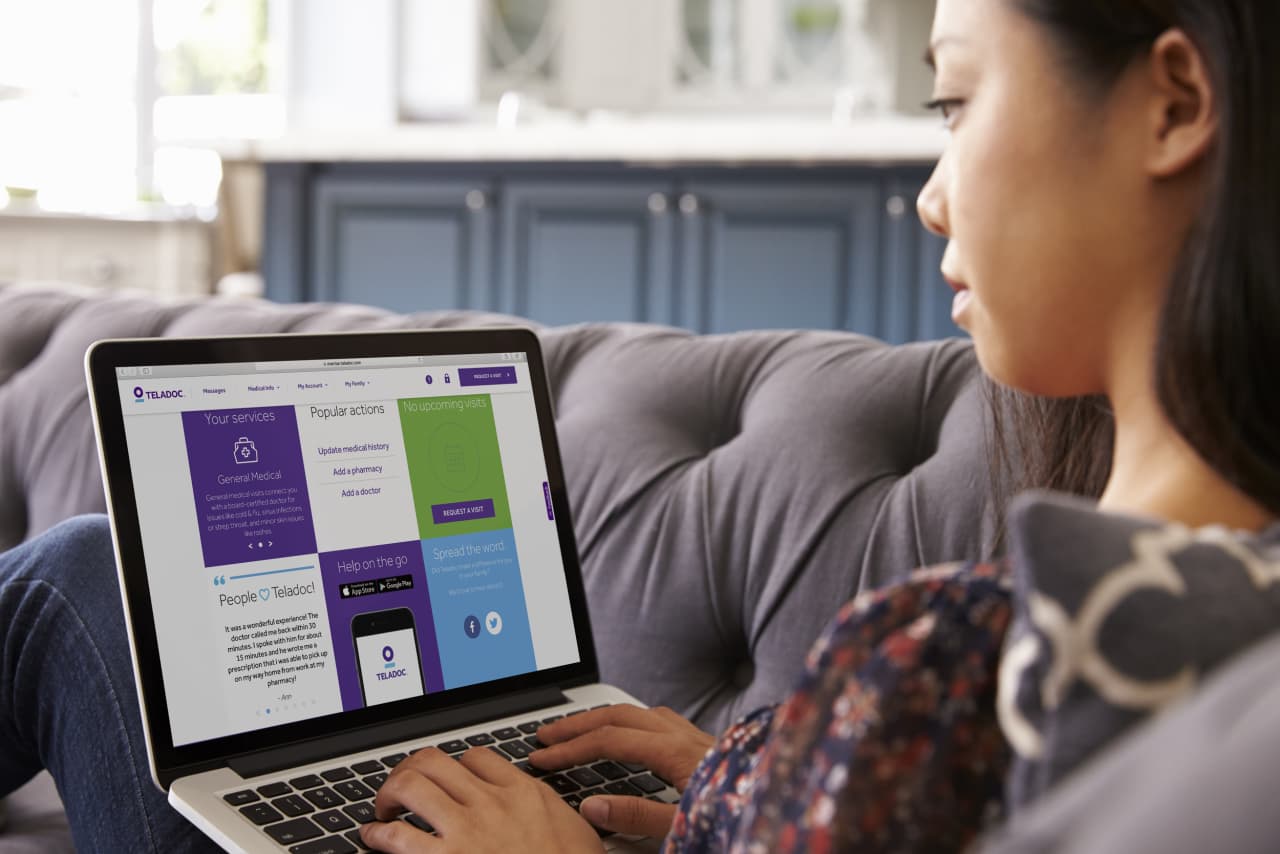Shares of Teladoc Health Inc. sank. Hours later Tuesday after the telehealth provider, known for its therapy platform BetterHelp, offered a largely pessimistic forecast for the coming months and warned that the market for virtual health care services was becoming saturated.
TDOC said in its earnings report on Tuesday:
It said it expects first-quarter sales to range from $630 million to $645 million, below FactSet analysts' expectations of $673 million. It said it expects a loss of 45 cents per share to 55 cents per share during this period, which is worse than analysts' expectations of a loss of 41 cents per share.
For the full year, Teladoc expects sales of $2.64 billion to $2.74 billion, below analysts' expectations of $2.77 billion, and a per-share loss of 80 cents per share to $1.10 per share, below expectations of $1.20 per share.
Teladoc shares fell 18% after hours. The stock rose during the pandemic as lockdown restrictions forced more people to interact online, but has fallen since then – and the company is now trying to cut costs and increase profits.
“It's important to remember that most U.S. healthcare consumers have access to virtual urgent care today,” CEO Jason Gourevitch said on the company's earnings call Tuesday. “So, it's very much an alternative market at this point.”
“We have consistently captured share in this market and expect to continue to do so,” Gourevitch continued. “But it's been fairly well penetrated, and so, we expect revenue growth from our U.S. virtual care products to be in the low single digits going forward. So, think of about half of the integrated care segment as stable but lower growth.”
The company's Integrated Care unit provides medical and mental health services to employers, hospitals and health plan providers. The other segment, BetterHelp, connects patients with therapists online.
On the call, Gourevitch said the demand for mental health services is still greater than the number of therapists who can handle them, and that Teladoc is trying to expand BetterHelp internationally.
But he noted that while the company is trying to focus more on profits, the number of new users BetterHelp can attract is “somewhat limited” by what the company can spend to attract them. He said he believes the company can deliver revenue growth at BetterHelp “in the low-single-digit range over the next three years, with opportunities for modest margin expansion.”
In the fourth quarter, BetterHelp's revenue was “basically flat” at $276.2 million, the company said.
Teladoc's total revenue for the quarter rose 4% year over year to $660.5 million. Analysts surveyed by FactSet expected $670.8 million. Teladoc lost 17 cents per share during the period — not as bad as the 22 cents per share that analysts had expected, and much narrower than its losses in the same period a year earlier.
Teladoc shares are down 28.2% over the past 12 months.


